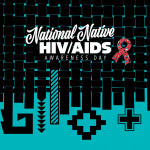Let’s face it. There is very little to like about COVID-19. It has killed way too many and made many others ill. It has ruined livelihoods and threatened our mental, physical and sexual health. It has kept families apart. It has stoked major social and political tensions. It has ruined travel plans. It has turned 2020 into one of the blackest years in recent history. And then came 2021, also starting off like a doozy, with more of the same the order of the day.
Amidst all this, there are, if you search for them, some positives. These are some that may resonate with those of us living with HIV. Call it scraping the barrel, if you will, but some of these are pretty major. Here are my top five.
1. Resilience is no longer just a buzzword.
It’s what we in the HIV community have all drawn on in the past, and it has mostly served us well now, I think. Who would have thought that 10 months of isolation in various stages of lockdown is something we could handle. True it has been a huge challenge, but we are still posting silly memes, still smiling (sometimes), still shouting at the TV, still planning for tomorrow. People living with HIV, particularly long-term survivors, are used to this, have lived through an epidemic of even more severe proportions. We can handle this temporary one.
2. I can’t ever remember a time when there has been so much focus on public health as opposed to personal heath.
Call it a correction on the self-obsessed last two decades. In any event, the nature of the epidemic has caused us to examine how we’re doing collectively more than ever before. It’s a shift from checking our abs daily to tracking the latest COVID data or the progress of vaccinations, perhaps. How others are navigating the epidemic directly affects us all, we have found. We wear a mask or stay inside not just for our own good but because it contributes to us all staying healthy. That sense of collective responsibility for the health of each of us is a good thing, right?
3. Let’s talk about Zoom and other platforms like it.
Now that we have all got the hang of it and there is less of “is this thing on?” it has been a boon, a new form of communication. Thank you COVID. I can’t count the number of meetings I’ve no longer had to spend hours, sometimes days, travelling to. Nor can I remember such rich exchanges with my family, who all live in the United Kingdom. Meanwhile, AIDS service organizations have mostly met the challenge of delivering services in innovative ways that suit the times. Often Zoom has been a centerpiece. True, our clinical care has taken a hit—there is no real substitute for face-to-face consultations with your doctor, I’ve found—but we have survived (see No. 2 above).
4. The absence of conferences or even face-to-face meetings for those of us active in the HIV sector has saved millions and millions of dollars, not to mention all those fossil fuels.
How these dollars will be redeployed remains to be seen. Some organizations like Canada’s CPPN have, with permission, done really good things, like paying peer volunteers for their services. In any event, COVID has opened up HIV organizations to making more efficient use of funding that often found its way into large conferences—conferences in danger of becoming bloated, international and otherwise. Bottom line? Virtual isn’t great, but it can get much of the job done.
5. COVID has changed our lives to include random acts of kindness as almost a given.
Who hasn’t checked in on a friend or been the recipient of a small gift of food or other favor? It’s a reminder of the truth in the old adage that adversity often brings out the best in people. People living with HIV are no exception.
I could mention other gleams of light in an otherwise dark year—deep dives into TV watching to relieve the boredom, explorations that resulted in true gems coming to light, for example. Or a deeper relationship with our pets. Or more home-cooking. Or the discovery that we can live with our partners’ company 24/7—and like it. Such benefits are not confined to people living with HIV of course. But I can’t help thinking that, as survivors, we are built to relish the good more than most. Because that’s how we roll.








Comments
Comments